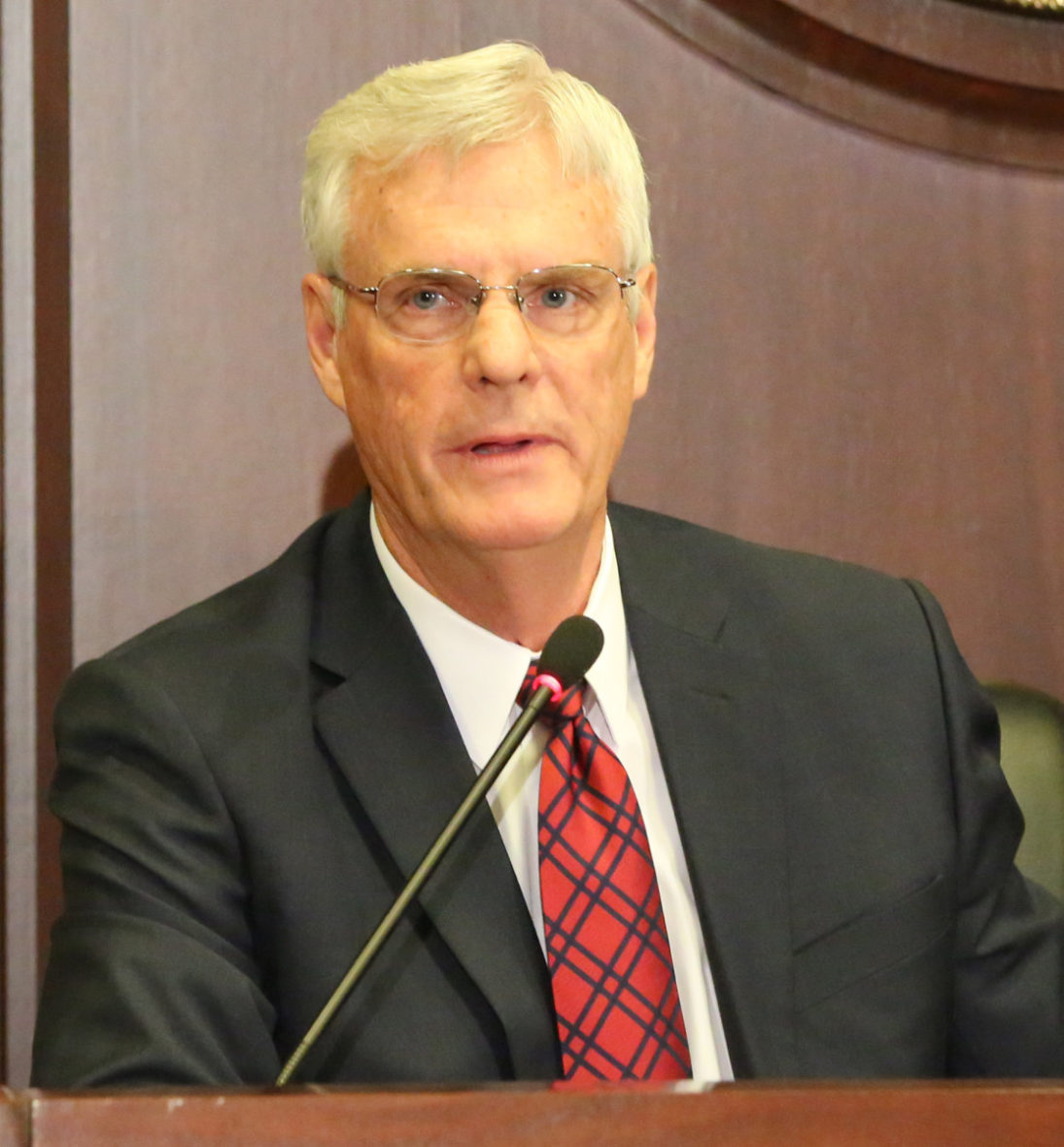After a two-hour debate — punctuated by a discussion of education and work force development — the Senate gave its final blessing to an income tax reduction bill.
With Thursday’s 26-9 vote, House Bill 463 goes to Gov. Butch Otter’s desk. Otter’s signature is a fait accompli, since the governor and GOP legislative floor leaders collaborated on the tax bill.

Leadership’s backing was readily apparent Thursday, as Senate President Pro Tem Brent Hill, a Rexburg Republican and retired certified public accountant, sponsored HB 463 on the Senate floor. The Senate’s floor leadership team was united — Majority Leader Chuck Winder and Assistant Majority Leader Steve Vick debated for the bill.
Nonetheless, Thursday’s debate was lengthy and sometimes pointed. And the debate was not restricted to the mechanics of a tax bill that would reduce corporate and individual income tax rates and create a state child tax credit, while conforming with the federal tax overhaul that passed Congress in December.
Sen. Janie Ward-Engelking, D-Boise, said the net cut of $104.5 million in state revenue jeopardizes a host of education programs — such as boosting teacher pay, upgrading classroom technology and allowing K-12 students to take college-level classes at state expense.
“We are still restoring programs that were cut during the Recession,” said Ward-Engelking, a retired teacher who sits on the Senate Education Committee. “This bill is simply too much, too soon.”
Sen. Grant Burgoyne, D-Boise, said HB 463 creates winners and losers. The $130-a-child tax credit does not do enough to offset tax increases elsewhere in the package — and that means parents with large families are facing a tax increase. “If a three-year-old takes scissors to her bangs, you don’t call it a haircut,” Burgoyne said.
Hill acknowledged this point — and said it was one part of the tax overhaul that he didn’t like. But he argued that the tax cuts elsewhere in the bill will stimulate the economy and make Idaho more competitive.
But Hill and other senators also argued that the time had come for a tax cut — after years of burgeoning tax collections.
“It’s been five years since we’ve had significant tax relief in the state of Idaho,” Hill said during his opening debate.
The timing for this year’s tax debate was imposed from Washington, D.C., with the federal tax overhaul. Idaho routinely conforms with federal tax code in order to simplify the filing process for families and businesses. But this year, conformity carries a heavy price tag; Idahoans will pay an estimated $97.4 million in additional state taxes.
For lawmakers such as Vick, R-Dalton Gardens, the idea of passing a straightforward conformity bill, and signing off on a $97.4 million tax increase, was not acceptable. The result was the complicated tax bill that passed Thursday, combining tax conformity with $201.9 million in tax cuts.
The bulk of the cuts will come by reducing income tax rates by .475 percent, across the board. That means corporate and high-end individual income tax rates will drop to 6.925 percent.
HB 463 already passed the House, on a straight party-line vote. The Senate vote wasn’t quite a party-line vote, and it reflected some divisions within the GOP. The Senate’s six Democrats were joined by three prominent Senate Republicans who opposed the bill: Local Government and Taxation Committee Chairman Dan Johnson of Lewiston, State Affairs Committee Chairman Jeff Siddoway of Terreton and Joint Finance-Appropriations Committee co-chair Shawn Keough of Sandpoint.
